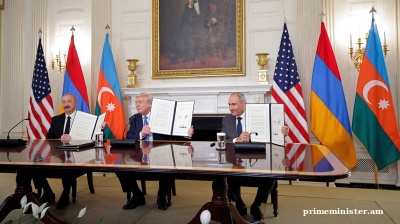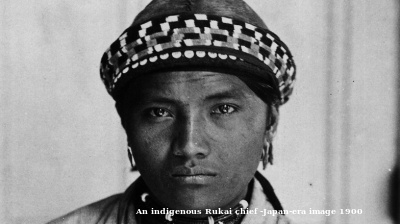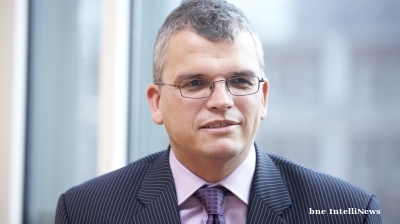A popular revolution broke out in Kyrgyzstan at the start of this week, following yet another fixed election in the Former Soviet Union (FSU), that has followed the template created by the protests in Belarus, but with some big differences. After only two days it seems that the Kyrgyz have already moved beyond the Belarusians, who will now look to Bishkek for inspiration in the post-Lukashenko period, if they get that far.
Events in Bishkek have run at a dizzying speed and it appears that after only two days the protesters have successfully brought down the government of President Sooronbay Jeenbekov. In Belarus self-appointed President Alexander Lukashenko remains in power after almost two months of protests.
As bne IntelliNews reported, the Kyrgyz Central Election Commission (CEC) cancelled the results of a disputed parliamentary election on October 6 and has called for fresh elections that have to be held within the next two weeks.
Mass demonstrations broke out almost immediately after the results of the October 5 elections were announced that saw only four parties get into Parliament, three of them closely associated with the incumbent Jeenbekov, from a field of over 20 parties.
Things started out the same as in Minsk, with mass demonstrations breaking out the same evening after the official results of the massively falsified presidential elections were announced on August 9.

And as in Belarus the authorities immediately called out the riot police. But after that things went very differently. The Kyrgyz police quickly lost control of the situation as the crowd in Bishkek stormed the government buildings that house the parliament and the president’s office.
In Minsk the protests have insisted from the beginning on a peaceful demonstration but were brutally attacked by the OMON and other security forces, who quickly arrested just under 7,000 people. In Bishkek it was the crowd that attacked the OMON, who were undermanned and therefore unable to fend off the assault.
It maybe that insisting on peaceful protests was a mistake, as the Blitzkrieg tactics of the Kyrgyz protests have swept the government aside before it had time to organise an effective defence. In Belarus Lukashenko came close to being forced out, culminating in a humiliating speech he gave to supposed core supporters at the MZKT truck factory on August 17. The next day Russian President Vladimir Putin announced Russia would send in troops “if necessary” and specifically said that any attack on government buildings would trigger the Russian assistance.
However, a historian’s rule of thumb is that all protests that engage 3.5% of the population or more – which Belarus does – are always successful and peaceful protests are twice as likely to succeed as violent ones.
Another big difference is that Jeenbekov seems to have already lost control of the situation and his current whereabouts are unknown. By midday the next day observers were asking who was in charge in Kyrgyzstan and the government was in disarray and unable to organise a co-ordinated response to the widespread unrest.
By contrast, Belarus’ Lukashenko holed up in his presidential palace, which was surrounded by a phalanx of masked special forces troops with anti-riot trucks and armed with rifles. Lukashenko remains fully in control of the police and OMON riot troops, which he is now entirely relying on to keep him in power.
Another big difference is on the first night the crowds in Kyrgyzstan then moved on to release a number of political prisoners from prison, including former president Almazbek Atambayev, who was sentenced to 11 years in jail on corruption charges in June. Other senior members of Atambayev’s administration were also released from jail. Atambayev and Jeenbekov are political rivals and the former claims the charges against him were politically motivated.
One of three key demands of the Belarusian protesters is the release of all of the 200 political prisoners currently incarcerated. Lukashenko has cracked down on the opposition and jailed almost all the opposition leaders, their family members and even their lawyers or driven them into exile.
One of the first to be arrested was Sergei Tikhanovsky, the husband of Svetlana Tikhanovskaya, who ended up running in the election in his place and winning it. Currently only one opposition leader from the presidium of the newly established Coordinating Council that is the unofficial representative body of the opposition is at liberty in Minsk. Siarhei Dyleuski, who leads the striking workers at the Minsk Tractor Works (MTZ), was released from prison in the middle of September after serving 15 days in jail for organising unauthorised protests.
The release of political prisoners was the theme of last week’s mass protests in Minsk on October 3, but the Belarusian demonstrators have been unable to force the authorities' hand and are unwilling to storm the jails to release prisoners by force. The Kyrgyz demonstrators were a lot less shy and rapidly overwhelmed the prison guards.
Now the Kyrgyz revolution is ahead of the Belarusian revolution, as they have already achieved two of the three goals: annul the election results and release the political prisoners. Next up will be to hold free and open elections.
 Power vacuum and interim government
Power vacuum and interim government
From this point on it is Kyrgyzstan that will be a lesson on how to proceed, not the other way round.
After the de facto fall of the government – and the situation remains very confused without any formal abdication by the old guard and no obvious leader for the new guard – there is now a power vacuum.
Anti-government protesters seized not only the headquarters of the president and the parliament, but also the State Committee For National Security (UKMK) that runs the security apparatus, and the public television and radio company (KTRK), which thwarts the government’s ability to take back control of popular politics and shape the story.
Lukashenko never lost control of the security forces but he did lose control of the state media when the entire staff walked out on strike. However, one of the first things Putin did to support Lukashenko’s regime was to send a technical team from RT to take over and run the state media, which immediately started pumping out propaganda allowing Lukashenko to counter the opposition media message, albeit largely ineffectively.
Anticipating new elections the old Kyrgyz establishment is beginning to fall apart. Bishkek Mayor Aziz Surakmatov and governors of several regions and districts have resigned amid the upheaval, as top officials look to the future and start attempting to protect themselves by distancing themselves from the old administration.
In a bizarre evening on October 6, unable to use the occupied parliament building MPs met in the Dostuk hotel and voted in a new prime minister, nationalist politician Sadyr Japarov. He had been sitting in jail only two days earlier until liberated by the crowds. He now heads an interim government.
RFE/RL's Kyrgyz Service reported that Omurbek Suvanaliev, a leading member of the opposition Butun (United) Kyrgyzstan Party, has also been appointed the interim chief of the UKMK, replacing Orozbek Opumbaev, whose location is unknown.
The Finance Ministry announced that it was suspending all financial transactions "until further notice from the legitimate authorities," adding that it has "acknowledged the power of the people." The ministry said in a statement that the ministry’s own staff, not the MPs, had unanimously voted to appoint Kyyalbek Mukashev as acting finance minister.
So now some sort of transition government has been cobbled together in a hasty set of ad hoc meetings; it has no real authority, but given the chaos will have de facto, but limited, control for the meantime. One of the main problems with all these votes is that only 20 members of the outgoing parliament from total of 120 members attended the meeting in the Dostuk, with another 67 reportedly giving colleagues a power of attorney to vote on their behalf, according to RFE/RL. The legitimacy of the decisions made at the meeting is wide open to dispute.
Coordination Councils
All of this has happened without the participation of the major opposition parties that were excluded from the recent election. That is a problem, as the point of the riots was to protest against the opposition’s exclusion and its right to join the government.
The leading eight opposition parties have borrowed again from the Belarusians and set up a Coordinating Council, that is a copy of the newly established Coordinating Council in Minsk, set up at Svetlana Tikhanovskaya’s instigation to negotiate with Lukashenko on forming a transition government before fresh elections can be held.

The Kyrgyz Coordinating Council brings together eight parties: Ata-Meken (Fatherland), Butun Kyrgyzstan, Zamandash (Contemporary), the Social Democrats, Bir Bol (Stay United), Ordo (The Horde), Respublika (Republic) and Reforma (Reform), reports RFE/RL. And the council has also invited other parties to join.
The Belarusian version is made up mostly of high-profile individuals, including the three women that campaigned against Lukashenko – Svetlana Tikhanovskaya, Veronika Tsepkalo and Maria Kolesnikova – as well as leading lawyers, strike organisers and cultural figures. Unlike Kyrgyzstan, because of Lukashenko's iron control of politics over the last 26 years, Belarus has no effective political opposition parties to speak of.
The Kyrgyz council called on the outgoing parliament sitting in the Dostuk hotel to appoint a new speaker, which it did late on October 6, electing Myktybek Abdyldaev to replace Dastan Jumabekov, who has resigned, according to reports. The appointment of a new speaker is important, as it is the speaker that takes over should the president quit or be otherwise indisposed.
With these appointments the way is cleared for an interim government to function until new elections can be organised.
In the meantime, Jeenbekov is fighting a rear-guard action to hang onto what little authority he has left, despite remaining the legitimate president of the country. Here is another big difference between Kyrgyzstan and Belarus, as with the latter it is Lukashenko’s job that is on the line, but in the former Jeenbekov keeps his job, at least for the meantime, even if there are fresh parliamentary elections.
In an interview with the BBC, he said that "as a legitimate president" he had "a big role" in trying to unite all sides and that he was willing to hold talks with the leaders of the various political parties in order to resolve the situation.
"I must unite them, and I must be ready to negotiate with each of them. This is my duty and I'm ready," Jeenbekov said when asked if he was willing to sit down for negotiations.
Opposition representatives say they have been unsuccessful in trying to contact the president in order to hold a meeting.
Opinion

COMMENT: US-brokered Armenia-Azerbaijan peace deal exposes Russia’s strategic failures
The recent peace breakthrough between Armenia and Azerbaijan is a major diplomatic win for the United States and a setback for Russia, according to a new report published by the Atlantic Council.

COMMENT: Why Beijing will never take Taiwan
Xi Jinping needs to think again before he sends so many young Chinese men and women to their deaths on Taiwan, for if the PLA does one day dare to land, they will be buried here.

COMMENT: Ukraine’s coming financial storm
“A crisis is drawing ever closer. It will break in Ukraine, but it won’t begin on the frontlines, where the country’s battle-weary brigades continue to impose a brutal cost on the Russian invader," writes Timothy Ash of BlueBay Asset Management.

BEYOND THE BOSPORUS: Performance postponed. Hotly anticipated “CHP” trial pushed into October
Every Turk up and down the country has an opinion on what Erdogan is up to.




